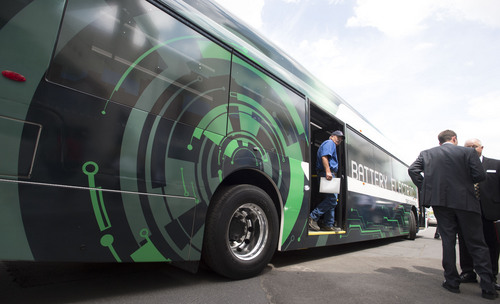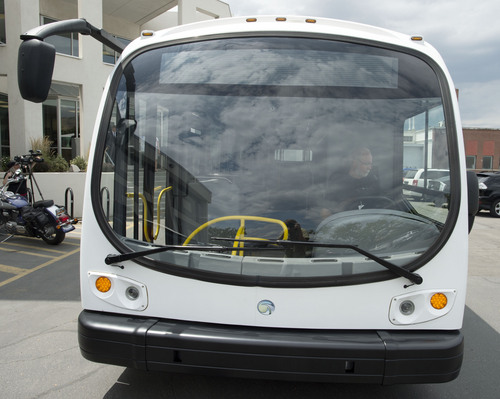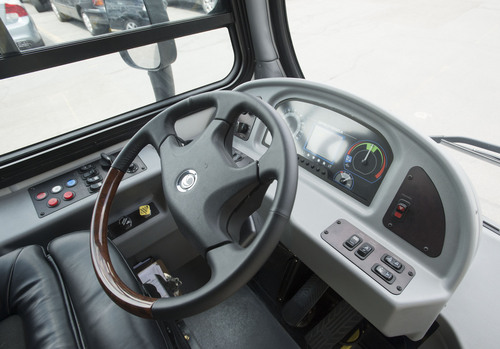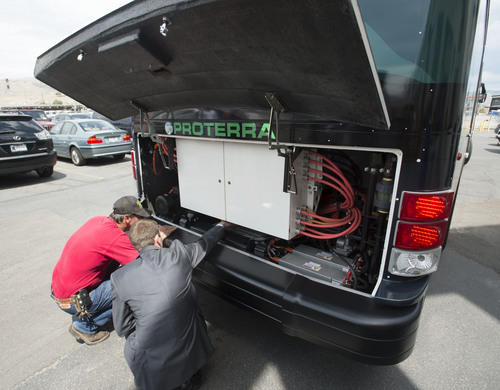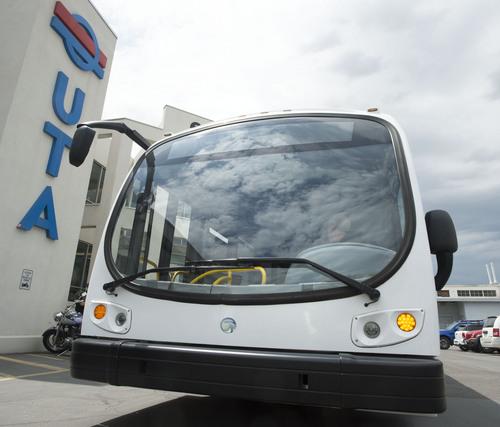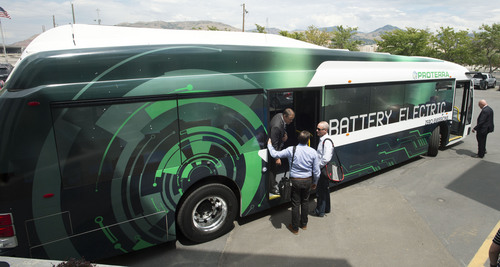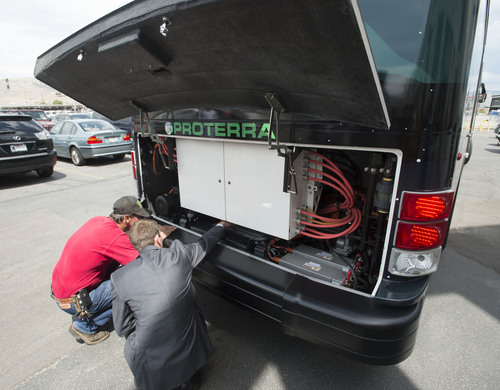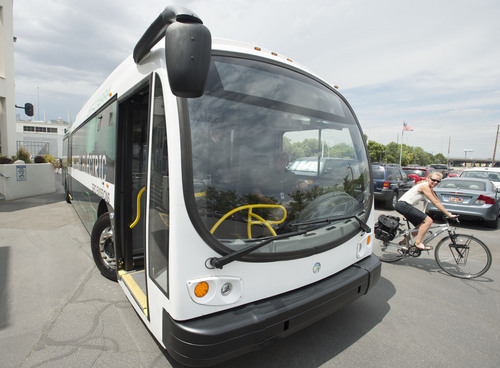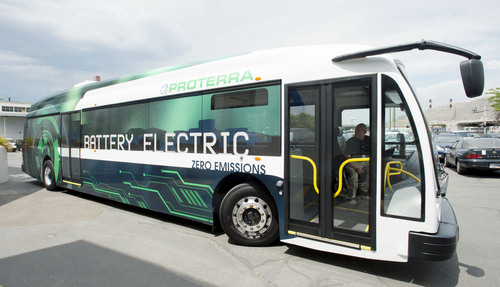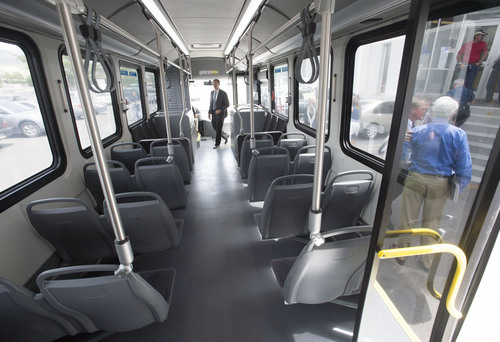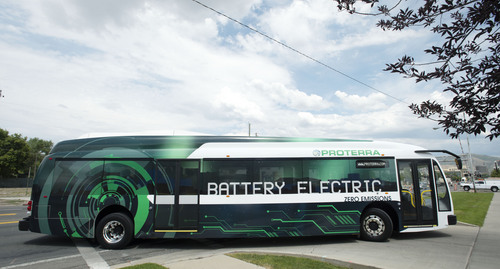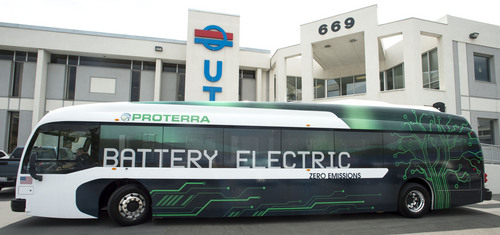This is an archived article that was published on sltrib.com in 2014, and information in the article may be outdated. It is provided only for personal research purposes and may not be reprinted.
The Utah Transit Authority took a close look Monday at a possible way to help clean Wasatch Front air: a zero-emissions electric bus with fast-charging technology that can operate 24/7 without conventional refueling.
Proterra brought its new second-generation electric bus for inspection by officials of UTA, Park City Transit and the media. UTA says while it is examining the bus for possible future use, it has not made any purchase commitments.
The price tag for the bus is $825,000, compared to about $400,000 for a diesel bus or $450,000 for a compressed natural gas bus. But Lee Wixom, regional sales representative for Proterra, said the savings on fuel and maintenance make the lifetime operational costs for the electric bus less expensive.
He said the bus is designed to pull up to an overhead recharging station at the end of a route, and can recharge in less than 10 minutes, allowing it to operate on a 30-mile route all day without returning to a garage.
With the cost of electricity for recharging, Proterra says its buses average about an 18 miles per gallon equivalency — compared to 3.86 miles per gallon equivalency for diesel buses.
Each bus also saves about 180,000 pounds a year in greenhouse-gas emissions, Wixom said.
Nine transit agencies nationwide currently have 56 Proterra buses in operation, according to the company.
The UTA currently has no electric buses of its own, although it received a federal grant to help the University of Utah to install a new electric WAVE bus — developed by Utah State University — that also recharges at the end of its routes.
UTA recently took delivery of its first 10 compressed natural gas buses to go with its diesel fleet, and plans to have 24 CNG buses in operation by the end of the year. It says it is switching to them to save on fuel costs and help reduce emissions.
UTA President and CEO Michael Allegra has said UTA hopes to have 200 CNG buses in operation in coming years, and is constantly looking for ways to hold down fuel costs and help clean the air.


